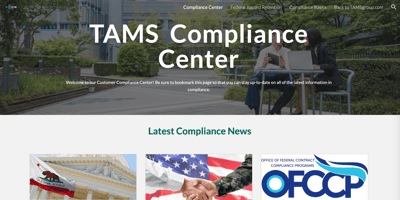Identifying, hiring and developing top performing talent is becoming increasingly more challenging...
You’re not as good as you think you are.
Learning through hands-on experience is one of the best ways to improve in business. Over the course of my career I’ve been fortunate enough to work for a couple of leading organizations that were ranked nationally in the top of their peer group. When I joined these organizations they were highly focused on achievement and consistently managed year over year growth. Similarly my consulting company has been fortunate enough to support several such high performing organizations. So there were plenty of opportunities to learn what drives success.
You will be surprised to learn that my greatest learning experience with high performing organizations was not always from their days of being on top but rather how they reacted to changing market conditions and adversity. The best organizations reacted to situations by developing appropriate strategies and rallying the team. Others went from being on top to literally imploding in quick fashion.
Not too long ago one of our clients purged their whole leadership team. The story would not be overly unique except for the fact that in the preceding two years the company was recognized by various publications and business experts as one of the top performing organizations in the region and country. There were many articles in the media praising the senior leadership team, their organizational culture and management philosophy. They were a case study for success. So how could they fall from the top so fast? Is it an isolated instance?
The timing of the organizational implosion was somewhat of a surprise to me and my team. The fact that it happened was not. We sensed that in spite of their growth the organizational culture lacked a true team identity and was not positioned to foster long term success or stability. After all, profits and stock were appreciating at historically high levels in comparison to similar organizations.
This recent experience reminded me of how many times I had seen this radical drop happen. Below are some common threads when organizations go from the top to the bottom in fast order.
First and foremost, the C-level leader does not have the right functional leadership team. In turn they are not getting the appropriate level of feedback, counsel and vigilance as to what is happening on the ground. Instead managers are simply riding the wave of success and not looking beyond the short term gains. In reality that success might be driven more by market conditions (example: high margin product/service that is in demand) rather than financial results being driven by effective management of sales and operations. Consequently there is a false sense of accomplishment - one that is short term.
Second, the C-level leader is not paying attention to or objectively assessing opposing or critical views. In my experience, sometimes those who offer opposing views are seen as not understanding the winning business recipe (that which is driving success). From personal experience I have been told “you don’t get it” when questioning certain aspects of our strategic approach. A couple of years down the road those same leaders are out and the company is imploding. Had they been more open minded and further assessed the opposing views it could have possibly saved the organization.
That gets us to the third point, which is that a culture has to be built on a common set of beliefs that are genuine. Everyone within the organization has to believe in them. In other words, employees know what to do in the absence of day to day management. They do not need to wait for the leader to tell them what to do. They simply execute within established performance norms. In the absence of this common alignment the cultural foundation is weak and will inevitably crack. Most of the organizations that I have seen dropping from the top were not aligned internally. In the face of a business crisis the organization as a whole was not prepared.
Lastly, based on my inherent cynicism, my feeling is that you are never as good as you think you are. You must constantly reassess what you are doing, how you are driving success and how things can improve, even when you are on top. Failure to do so can lead to rapid decline which will be difficult to stop or turn around. Having an open mind, listening and assessing opposing views is a great way to keep yourself and your ego in check.
Dan Simovic is the Managing Director at TAMS Group. He works with a team of top-notch consultants to provide practical solutions to companies designed to improve employee and organizational productivity, attract, develop, manage and reward their most critical assets: their employees; and minimize workplace compliance risk.




